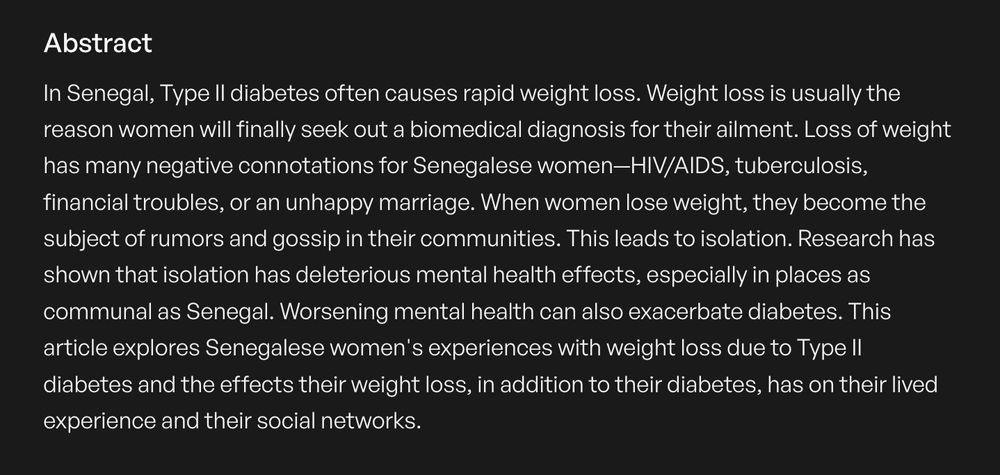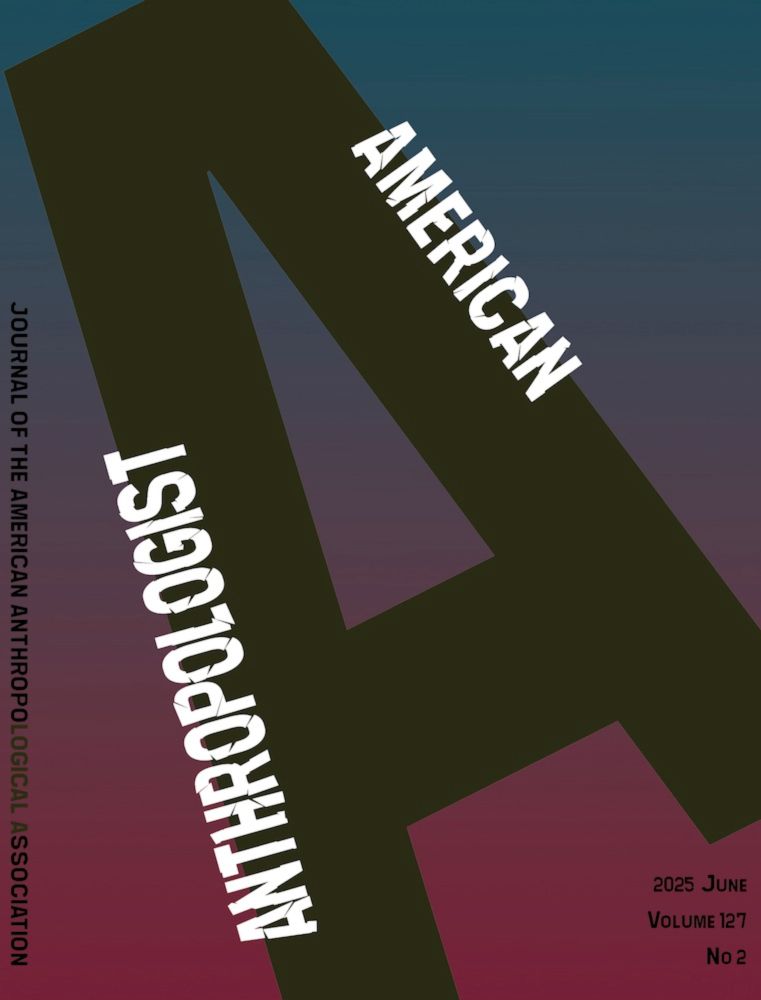American Anthropologist
@amanthro.bsky.social
260 followers
20 following
22 posts
American Anthropologist is the flagship journal of the American Anthropological Association. The journal advances research on humankind in all its aspects.
Posts
Media
Videos
Starter Packs
Pinned
Reposted by American Anthropologist
Reposted by American Anthropologist
Reposted by American Anthropologist
Jing Xu
@jing-xu.bsky.social
· 28d

<em>American Anthropologist</em> | AAA Anthropology Journal | Wiley Online Library
This interview with Professor Mun Young Cho, a leading cultural anthropologist at Yonsei University, explores her intellectual journey and research on poverty, labor, development, and youth in China ...
doi.org
Reposted by American Anthropologist
Reposted by American Anthropologist
Reposted by American Anthropologist
Reposted by American Anthropologist
Reposted by American Anthropologist
Reposted by American Anthropologist
Reposted by American Anthropologist

























